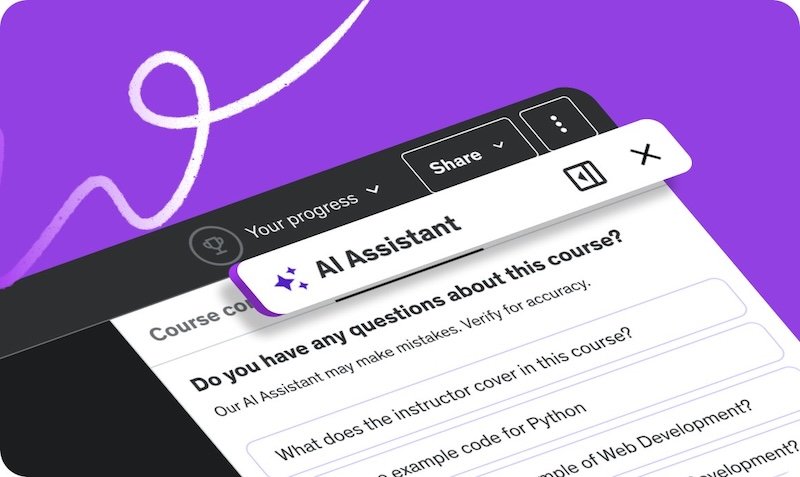Supporting your academic journey: Check out these top tips for securing college funding
Pursuing higher education can be a rewarding decision but it can often come with a significant financial burden. Tuition fees, books, and other living expenses can add up very quickly.
Fortunately, there are a lot of ways to fund your college education without having to rely on personal savings or getting into unmanageable debt. With some careful planning and a very strategic approach, you can effectively put together multiple sources of funding.
These will support your academic journey. Here is a look at the most effective ways you can go about funding your college education.
Apply for Scholarships Consistently
Scholarships are the most accessible and beneficial forms of financial aid you can get. This is because they will not need repayment.
They are usually awarded based on your academic performance, sports achievements, and artistic talents. Sometimes they are given for community service, or leadership skills. Many organizations, foundations, and educational institutions will often offer scholarships to eligible students spanning a wide range of disciplines.
Start researching scholarship opportunities ahead of your college application. Many scholarships open up months or sometimes even a year before the academic year begins.
Apply to as many of them as you qualify for. Apply to both large national programs and small or private awards. Be sure to write a strong, personalized essay and keep your grades up, as this will improve your chance of being successful.
Explore Grants and Bursaries
Grants and bursaries are quite similar to scholarships. They do not require repayment on your part. However, grants are usually need-based, this means that they are awarded to students who have demonstrated that they have financial hardship.
Bursaries are often provided by educational institutions, as well as charitable groups. They are sometimes awarded by private entities too. This often helps to cover the specific costs of studying such as tuition, accommodation, or books.
Eligibility requirements for grants and bursaries can often vary widely. This is why it’s essential that you read the fine print and then ensure you apply accordingly.
Some are aimed at particular fields of study or even a demographic group. Others may require proof of income on your part or academic performance. Make sure you are submitting thorough and timely applications. This increases your chance of securing these fundings.
Consider Starting at a Community or Technical College
If a four-year institution seems a bit too expensive for you at the outset, you should consider enrolling in a community college or even a technical institute. These schools will often offer lower tuition rates while still providing quality education.
This is especially true for general education courses as well as practical skills programs. After completing a diploma or even an associate degree, you can transfer your credits to a university to finish up your degree.
This approach is going to significantly reduce the overall cost of your education. It also gives you time to explore your academic interests, and improve grades. You can also save money before transitioning to more expensive programs.
Many institutions often have agreements that allow seamless credit transfer. Make sure that you confirm this in advance.
Get a Part-Time Job or Join a Work-Study Program
Balancing a part-time job with studying is a time-tested way that you can fund your college education. Working just a few hours a week at a job on campus or at a retail store, or even a local business will help to pay for daily expenses.
It will also reduce your reliance on loans as well. Some colleges often offer work-study programs, and this allows students to earn money in roles that are related to their field of study.
Work-study programs will typically offer you flexible hours that will accommodate your class schedule. Even if formal work-study isn’t available at your college, you can try freelance work or even remote jobs that can offer you additional flexibility. Gaining professional experience during college will improve your employment outlook after graduation.
Tap Into Family Contributions and Savings Plans
Some families often set aside money for college over the years. They do this through education savings plans or just general investments. If your family has saved for your education, then it is time to make the most of that support. Have an open and honest conversation with your family members. Talk to them about what they can contribute and the expectations they may have.
If you don’t have a formal savings plan, then small contributions from multiple family members can still help you. Funds from grandparents, aunts, or uncles will still add up.
Try to be transparent and express your goals as this will encourage financial and emotional support. Every little bit helps when you are managing tuition and living costs.
Borrow Responsibly with Student Loans
Student loans are a very common method used to fund college, and they should be approached carefully. If you need to borrow money, then be sure to research your options thoroughly.
Focus first on loans that have the most favorable terms. You want to find loans that have low interest rates, and flexible repayment plans. Find loans that have deferred payments while you are studying.
Many students start out with government or institution-backed loans since they generally have lower interest rates and better borrower protections. However, when those sources become exhausted or unavailable, private student loanscan be used to fill the gap. These are typically offered by banks or financial institutions.
Availability will typically depend on your credit history or that of your co-signer. Always understand the terms and total repayment costs before you commit to any loan.
Seek Out Employer Sponsorship or Tuition Reimbursement
Some companies will offer tuition assistance or sponsorship programs. They will give employees seeking higher education these scholarships.
If you are currently working or plan to work during your studies, you should look for employers who can support your education. These benefits may include direct reimbursement, or even payment for specific courses. Some may offer funding for a full degree in exchange for a service commitment.
In some cases, companies will have partnerships with academic institutions. This will allow employees to study at a reduced cost. These types of opportunities are not limited to full-time roles.
Some part-time or seasonal jobs will also offer educational benefits. Try to be proactive and inquire about any educational support available during the hiring process.
Join a Training Program With Educational Perks
Certain career fields will offer paid training programs or apprenticeships that include formal education. These arrangements will allow you to gain some practical skills while receiving financial support.
They may even give you a salary or living allowance. Fields such as healthcare, engineering, and technology will often offer these opportunities.
In some cases, you can commit to working for the sponsoring organization for a specific amount of time after you have completed your education. This path will not only give you the money for your degree but it will also provide guaranteed job placement. This will bring valuable experience in the profession you have chosen.
Enter Competitions and Academic Challenges
Academic competitions and talent-based challenges often offer a unique way to fund your college education. These events will often reward top performers with cash prizes, and scholarships. You may also get research funding.
Competitions exist for a wide range of disciplines. These include science, math, writing, as well as technology.
Participating in these types of challenges will not only provide funding but it will also enhance your academic profile and build your confidence. Try to stay informed about relevant competitions through your school, and online platforms. You should be prepared to invest time in preparation, as the rewards can be quite significant if you do.
Crowdfund Your Education Online
Crowdfunding platforms will often allow students to raise money for their education. You can get this money from friends, family, as well as generous strangers.
Create a campaign that shares your story, and goals. Make sure it gives you the financial support that you need to continue your studies.
Websites such as GoFundMe make it easy for you to launch a campaign and then share it through social media.
To increase your chances of success, always be honest, transparent, and extremely specific about your needs. Offer updates and make sure you express gratitude to your donors.
While crowdfunding shouldn’t be your sole source of funding, it can help supplement other efforts and bring some attention to your academic journey.
Look for Internships That Pay
Internships are not only about getting work experience, they can also be a great source of income. Many industries will offer paid internships to students and even recent graduates. These positions may be full-time over summer breaks or they may just be part-time during the school year. Some programs will also provide you with housing or transportation stipends.
Start searching for internships very early and be sure to tailor your applications to highlight all your relevant skills and interests. Even unpaid internships can sometimes lead to future paid opportunities. At the very least you may get academic credit, which can indirectly reduce your overall college expenses. It does this by speeding up the graduation timeline.































